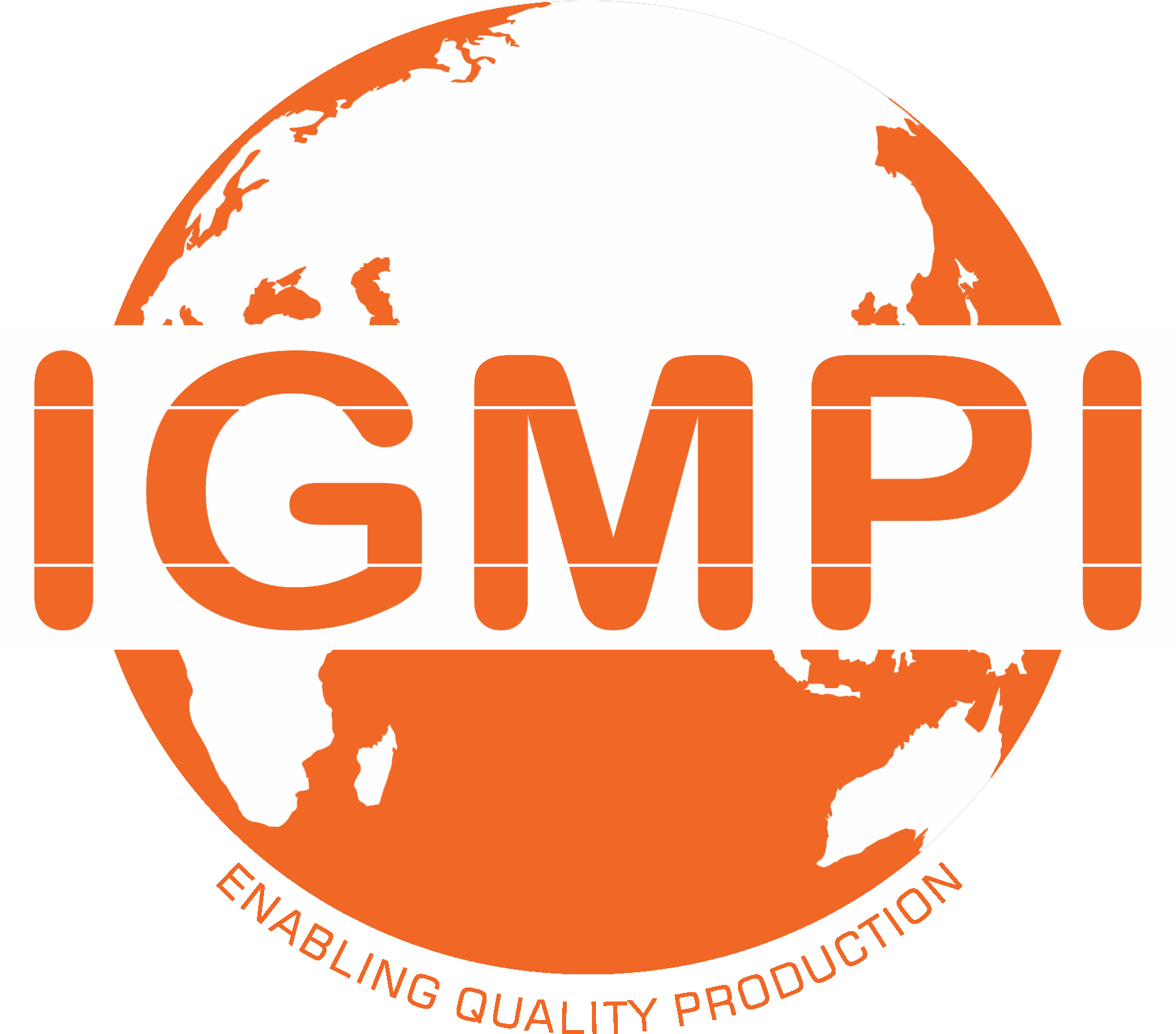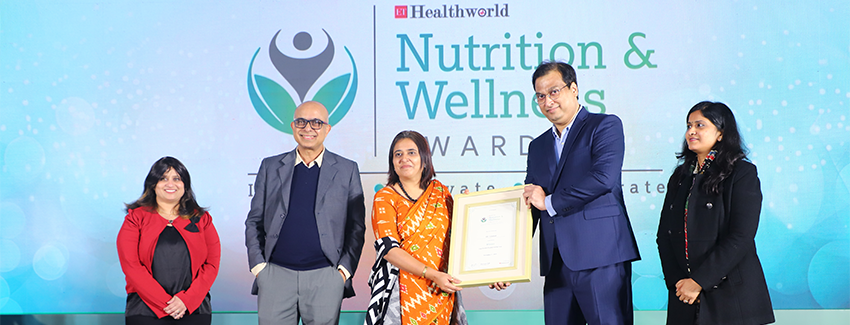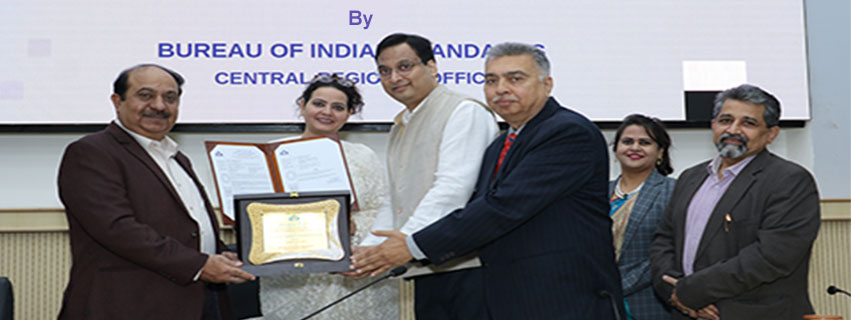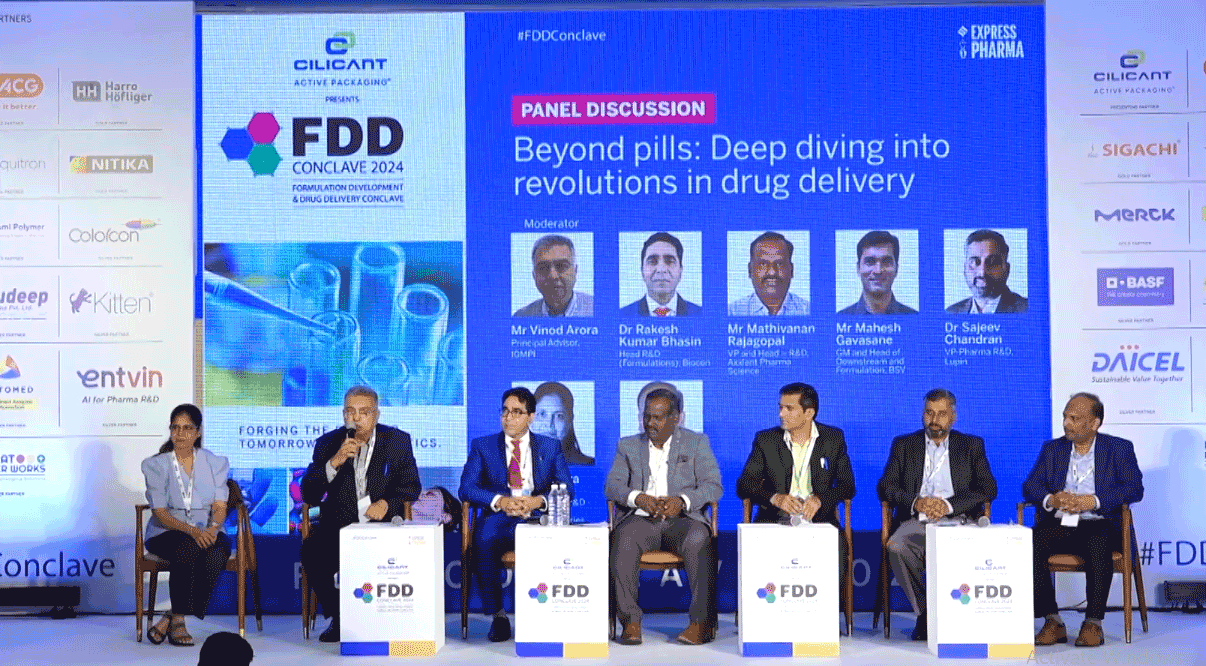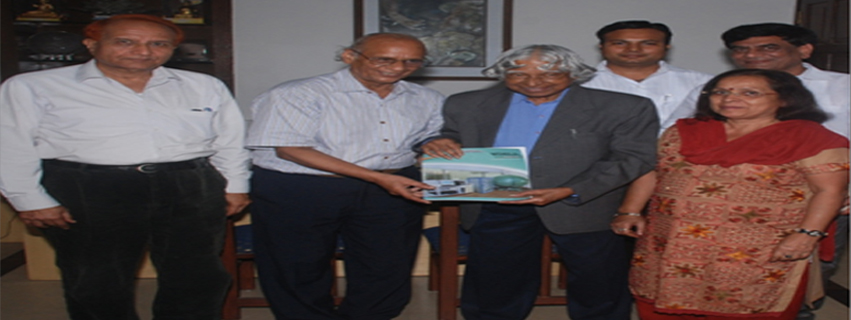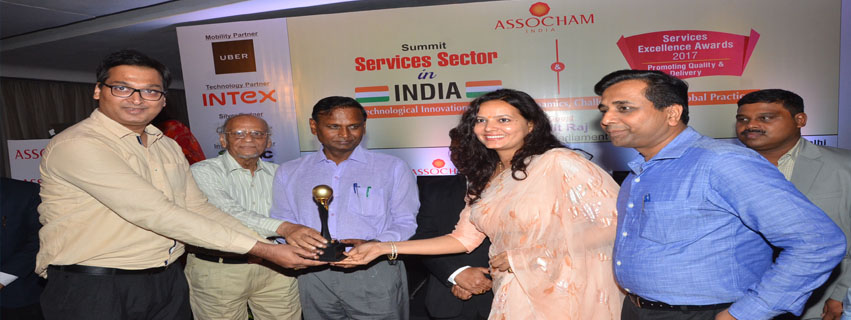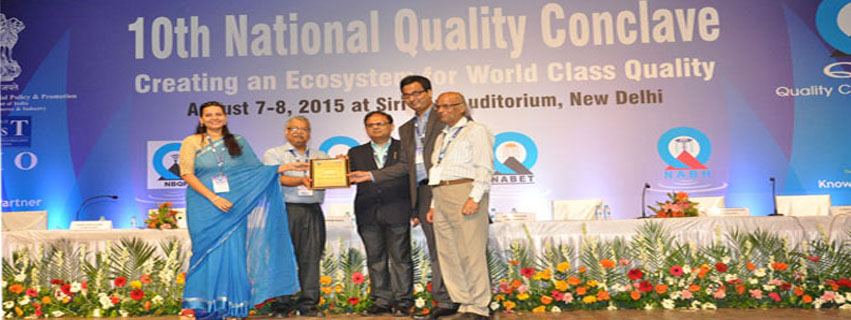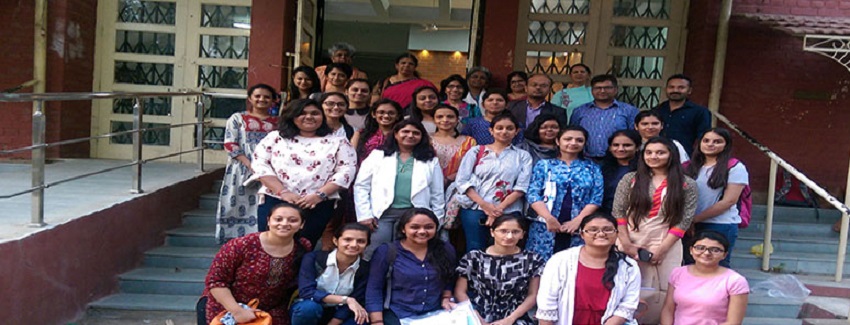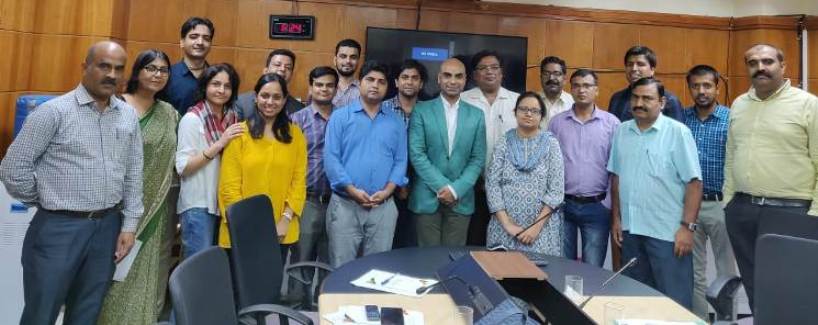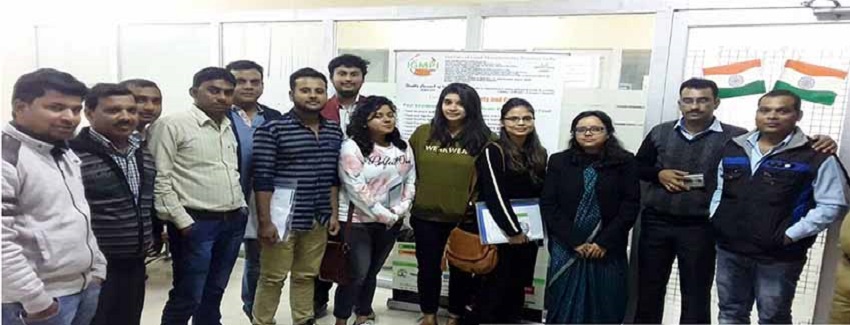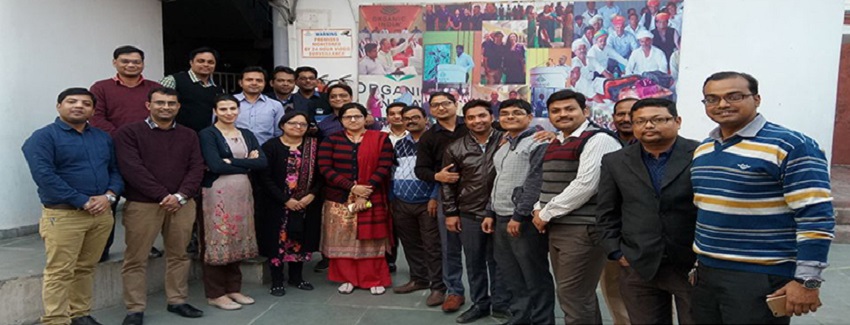(An Autonomous Body Recognized by Ministry of Commerce & Industry, Government of India)
Competency based placement focussed Education | Training | Research | Consultancy
Post Graduate Diploma in Ayurvedic Gastroenterology (PGDAG)
The Post Graduate Diploma in Ayurvedic Gastroenterology is designed for Ayurveda practitioners and healthcare professionals to gain expertise in Ayurvedic concepts related to digestive health. The course integrates classical Ayurvedic knowledge with modern research on gastrointestinal disorders. Participants will learn Ayurvedic pathophysiology, diagnostic methods, dietary and lifestyle management, herbal formulations, and disease-specific therapies for GI disorders.
Course Objectives
Upon completion of this program, participants will:
-
Gain a deep understanding of Ayurvedic concepts of digestion and metabolism.
-
Master Agni (digestive fire), Doshas, Srotas (channels), and their role in gut health.
-
Learn about common gastrointestinal disorders and their Ayurvedic management.
-
Develop skills in Ayurvedic diagnostic methods such as Nadi Pariksha (Pulse Diagnosis) and Roga Pariksha (Disease Examination).
-
Explore Ahara (diet), Ritucharya (seasonal regimens), and Dinacharya (daily routines) for digestive health.
-
Understand the role of Ayurvedic herbal formulations in treating GI disorders.
-
Integrate Ayurveda with modern gastroenterological research for holistic health.
Programme Structure
International Affiliation with
Programme Structure
International Affiliation with
Module 1: Anatomy and Physiology of Gastrointestinal System
Module 2: Foundations of Ayurvedic Gastroenterology
-
Ayurvedic perspective on digestion & metabolism
-
Panchamahabhuta (Five Elements) & Tridosha (Vata, Pitta, Kapha) in digestive health
-
Agni (Digestive Fire): Sama, Vishama, Tikshna, Manda
-
Srotas (Microchannels) of Digestion: Annavaha, Purishavaha, Raktavaha, etc.
-
Prakriti (Body Constitution) & Vikriti (Imbalance) Analysis for digestive health
-
Mala (Waste Products): Stool & urine as indicators of gut health
Module 3: Ayurvedic Understanding of Digestive Disorders
-
Ayurvedic pathophysiology of GI diseases
-
Role of Ama (Toxins) & Malas (Waste Products) in disease formation
-
Classification of gastrointestinal disorders based on Doshas
-
Key GI Disorders & Their Ayurvedic Explanation:
-
Amlapitta (Acid Reflux, Hyperacidity)
-
Grahani Roga (IBS, Malabsorption Syndrome)
-
Arshas (Hemorrhoids/Piles)
-
Udavarta (Gas, Bloating, Reverse Peristalsis)
-
Atisara (Diarrhea) & Pravahika (Dysentery)
-
Gulma (Abdominal Masses & Tumors)
-
Yakrit Vikara (Liver Disorders, Hepatitis, Cirrhosis)
-
Parinama Shoola (Peptic Ulcer, Gastritis)
Module 4: Ayurvedic Diagnostic Methods in Gastroenterology
-
Dashavidha Pariksha (10-Fold Examination) in GI health
-
Nadi Pariksha (Pulse Diagnosis) for digestive disorders
-
Jihva Pariksha (Tongue Diagnosis): Identifying Ama & Dosha imbalances
-
Mutra & Mala Pariksha (Urine & Stool Examination) for gut health
-
Shabda-Sparsha-Rupa-Rasa-Pariksha (Sensory Diagnosis) in gut diseases
Module 5: Ayurvedic Dietetics & Nutrition for Gastrointestinal Health
-
Ahara (Food) & Its Impact on Digestion
-
Concept of Pathya-Apathya (Dietary Guidelines) for GI disorders
-
Ayurvedic principles of Rasa (Taste), Guna (Quality), Virya (Potency), Vipaka (Post-Digestive Effect)
-
Ahara Vidhi (Rules of Eating): Proper food combinations for gut health
-
Therapeutic use of Takra (Buttermilk), Ghee, Herbal Teas, & Spices
-
Ayurvedic food modifications for Vata, Pitta, & Kapha digestion types
Module 6: Ritucharya (Seasonal Regimens) & Its Impact on Digestion
-
How seasonal changes affect Agni (Digestive Fire)
-
Seasonal Guidelines for Gut Health:
-
Varsha Ritu (Monsoon) – Vata aggravation, indigestion issues
-
Sharad Ritu (Autumn) – Pitta aggravation, acidity, ulcers
-
Hemanta & Shishira Ritu (Winter) – Kapha balance, metabolic boost
-
Vasanta Ritu (Spring) – Kapha aggravation, allergies, sluggish digestion
-
Grishma Ritu (Summer) – Pitta aggravation, dehydration
-
Ayurvedic herbs & diet plans for each season
Module 7: Dinacharya (Daily Routine) for Optimal Digestion
-
Importance of regular eating patterns & mindful eating
-
Morning & Evening Routines for gut health
-
Role of exercise (Vyayama), Yoga, & Pranayama in digestion
-
Benefits of oil pulling (Gandusha) & tongue scraping (Jihva Nirlekhan) in detoxifying the gut
-
Ayurvedic fasting (Upavasa) & its effects on digestion
Module 8: Ayurvedic Herbs & Classical Formulations for Digestive Health
-
Essential Ayurvedic herbs for the gut:
-
Triphala (Haritaki, Amalaki, Bibhitaki) – Colon cleanser & rejuvenator
-
Shunthi (Ginger), Pippali (Long Pepper), Maricha (Black Pepper) – Agni stimulators
-
Kutaja, Musta, Bilva, Chitraka – Anti-diarrheal & gut-healing herbs
-
Ayurvedic formulations for digestive disorders:
-
Avipattikar Churna (For Acidity & Indigestion)
-
Hingwashtak Churna (For Gas & Bloating)
-
Arogyavardhini Vati (For Liver & Metabolism Boost)
-
Takrarishta (Medicated Buttermilk for IBS & Indigestion)
-
Draksharishta & Kumaryasava (For Liver Detox & Gut Health)
Module 9: Integrative Approach – Ayurveda & Modern Gastroenterology
-
Gut Microbiome & Ayurveda – Correlation of "Pachaka Pitta" & gut bacteri
-
Ayurvedic vs. modern perspectives on gut-brain connection
-
Scientific evidence supporting Ayurvedic herbs & formulations for GI health
-
Case Studies on Successful Ayurvedic Treatments for Acid Reflux, IBS, IBD
Module 10: Mind-Gut Connection & Mental Health Integration
-
Role of Ayurveda in Gut-Brain Axis & Mental Health
-
Stress & Anxiety Management through Ayurveda for Digestive Disorders
-
Integration of Meditation & Pranayama for Gut Health
Module 11: Yoga Therapy & Ayurveda for Digestive Disorders
-
Role of Asanas in Digestive Health
-
Therapeutic Yoga for IBS, GERD, & Liver Disorders
-
Combining Ayurvedic Therapies with Yoga for Optimal Gut Health
Module 12 : Mindfulness and Gut Health in Ayurveda
-
The Science of Mindfulness and Digestive Health
-
Ayurvedic Psychology (Manas Vidya) & Gut Function
-
Meditation Practices for Digestive Well-Being
-
Role of Emotional Balance in Gut Disorder.
Module 13 : Case Studies & Practical Application
-
Designing personalized diet & herbal plans for digestive health
-
Written & practical assessment of case studies
Module 14: Capstone Project
Assessment & Certification
All the participants are expected to appear for an online exam and are also obliged to submit assignments after each module. After successful completion, the participants will be awarded Post Graduate Diploma in Ayurvedic Gastroentrology by Centre for Health Management and Research, IGMPI. For all the above mentioned modules elaborate programme material, self-assessment assignments and project work details would be provided by the Institute from time to time. Details get updated on the webpage as well.
Discipline in Classes and Examination
Every student is required to observe a disciplined behaviour during her/his classes, assessments & examinations and to follow instructions from the Professors. Any act of indiscipline may result into discredit & it will be mentioned in her/his academic report.
Eligibility:
Graduates in any discipline are eligible for our Post Graduate Diploma, Executive Diploma and Professional Certification Programmes.
Programme Duration
The minimum duration to complete the PG diploma program is 12 months and maximum is 24 months.
Programme Mode
Registrations are currently open for regular and Part-time (Online Live Classes) both modes.
Programme Deliverables
A comprehensive study material for all the modules in hard copies ensuring the needs of the audience. The accompanying training material is appropriately aligned with the current Industry's expectations.
– Assignments for all the programme modules for continuous evaluation and guidance.
– Interactive or online live sessions on all key areas of the programme giving all flexibility to the participants.
– Part-time (Online Live Classes) for all the modules will be conducted on the weekends. Moreover, a doubt clearing session will also be scheduled before the examination.
– All the efforts are made by IGMPI faculty members to make the entire programme modules easily understandable.
– Assessment and evaluation for all the programme modules in order to enhance the levels of competencies and skills of the participants leading towards the objective of application in the job.
– At the end of each programme modules, the trainers shall obtain feedback from the participants using specially designed questionnaires.
– All learning and training delivery initiatives shall be conducted in English.
Placement Assistance & Corporate Relations
The Institute has partnered with many organizations for providing with placement assistance to in its participants. The robust placement cell comprises of senior level Human Resources professionals and Talent Acquisition experts which maintains close links with business and industry. We are engaged in
Promoting the employability of our participants by maintaining good rapport and relation with HR cell and recruiting managers of leading companies across the globe. The efforts of our placement cell also include helping with professional resume writing, interview skills & conducting mock interviews etc.
Graduates specializing in Ayurvedic Gastroentrology in India can explore opportunities with several prominent organizations that value expertise in this field like Healthcare & Hospital Partnerships, Corporate Wellness & Holistic Health Companies, Government & NGO Collaborations etc.
Who Should Apply?
This program is ideal for:
-
Ayurvedic Practitioners & Students (BAMS, MD Ayurveda)
-
Healthcare Professionals (MBBS, BHMS, BUMS, Naturopaths, Homeopaths, Wellness & Nutrition Experts
-
Ayurvedic Researchers & Academicians.
-
Alternative Medicine Enthusiasts
Future career prospects
Graduates of the Postgraduate Diploma in Ayurvedic Gastroenterology can pursue careers in clinical practice, research, corporate wellness, and entrepreneurship. They may work as Ayurvedic specialists in hospitals, wellness centres, and private clinics or offer telemedicine consultations. Opportunities in research, academia, and Ayurvedic pharmaceuticals are also expanding. The corporate wellness sector offers roles in gut health consulting and preventive healthcare programs, while wellness resorts and online platforms provide avenues for holistic health coaching. Entrepreneurs can develop Ayurvedic herbal formulations, functional foods, and diet consultancy services. With the increasing demand for natural digestive healthcare, this specialization offers diverse and rewarding career paths.
Programme Fee Details
Programme fee details will appear here.
Last date for submitting completed Application Form: 17th Feb 2026.
For further enquiries, call or write to us on:
18001031071
(Toll Free -9:00 am to 5:30 pm IST-except on Central Government holidays)/
info@igmpi.ac.in
NEWSLETTER
- The Trump administration rolls back Biden-era health IT rules, including AI ‘model card’ requirements.
- Afghan Health Delegation to Engage Indian Pharma Firms on Trade and Collaboration
- HHS Seeks Industry Input to Accelerate AI Adoption in Healthcare
- WHO Academy Launches Course on National Cancer Control Planning for Programme Managers
Other Programmes
- Addiction Psychology (PGDAP/EDAP)
- Adolescent Health and Counselling (PGDAHC/EDAHC)
- Ayurveda Practices (PGDAP/EDAP/DAP)
- Ayurvedic Cosmetology (PGDAC/EDAC)
- Child Psychology (PGDCP/EDCP)
- Clinical Cosmetology (PGDCC/EDCC)
- Clinical Epidemiology (PGDCE/EDCE)
- Clinical Psychology (PGDCP/EDCP)
- Cognitive Behavioural Therapy (PGDCBT/EDCBT)
- Counselling & Family Therapy (PGDCFT/EDCFT)
- Counselling Psychology (PCP/ECP)
- Cultural Psychology & Psychiatry (PGDCPP/EDCPP)
- Digital Health (PGDDH/EDDH)
- Educational Psychology (PGDEP/EDEP)
- Epidemiology and Biostatistics (PGDEB/EDEB)
- Facial Aesthetics (PGDFA/EDFA)
- Forensic Psychology (PGDFP/EDFP)
- Health and Sanitation (PGDHSI/DHSI)
- Health and Wellness Psychology (PGDHWP/EDHWP)
- Health Economics (PGDHE/EDHE)
- Health Informatics (PGDHI/EDHI)
- Health Information Management (PGDHIM/EDHIM)
- Health Inspector (DHI)
- Health Insurance Management (PGDHIM/EDHIM)
- Healthcare Analytics (PGDHA/EDHA)
- Healthcare Marketing (PGDHM/EDHM)
- Healthcare Quality Management (PGDHQM/EDHQM)
- Herbal Medicine (PGDHM/EDHM)
- Hospital and Healthcare Management (PGDHHM/EDHHM)
- Industrial/Organisational Psychology (PGDIOP/EDIOP)
- Integrative Medicine (PGDIM)
- Kaya Chikitsa (PGDKC/EDKC)
- Marriage and Family Education (PGDMFE/EDMFE)
- Maternal and Child Health (PGDMHC/EDMHC)
- Medical Coding (PGDMC/EDMC)
- Medical Records Technology (PGMRT/EDMRT)
- Mental Health and Psychotherapy (PGDMHP/EDMHP)
- Mind-Body and Lifestyle Sciences (PGDMBLS/EDMBLS)
- Naturopathy (PGDN)
- Naturopathy and Yogic Science (PGDNYS/EDNYS/DNYS)
- Neuropsychology (PGDNP/EDNP)
- Nursing Administration (PGDNA/EDNA)
- Psychosocial Rehabilitation (PGDPR/EDPR)
- Public Health (Epidemiology as Major) (PGDPHE/EDPHE)
- Public Health and Hospital Management (PGDPHHM/EDPHHM)
- Sanitary Inspector (DSI)
- Telehealth (PGDTH/EDTH)
- Yoga Therapies (PGDYT/EDYT)
